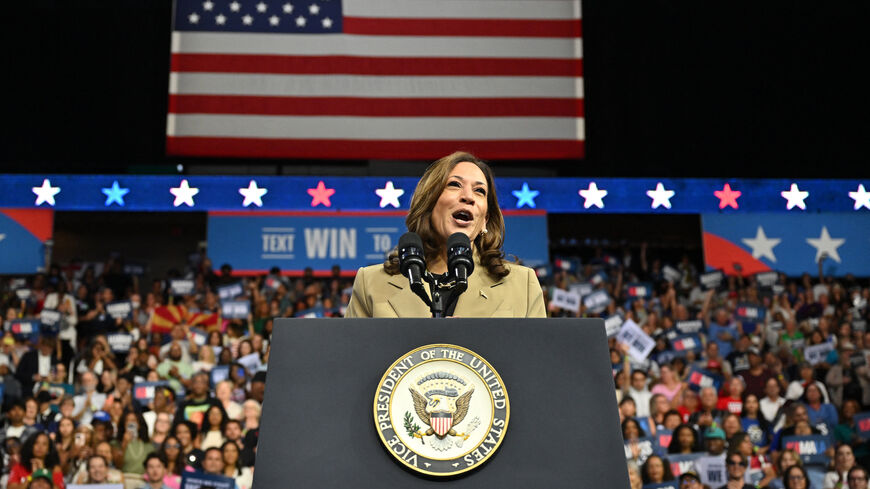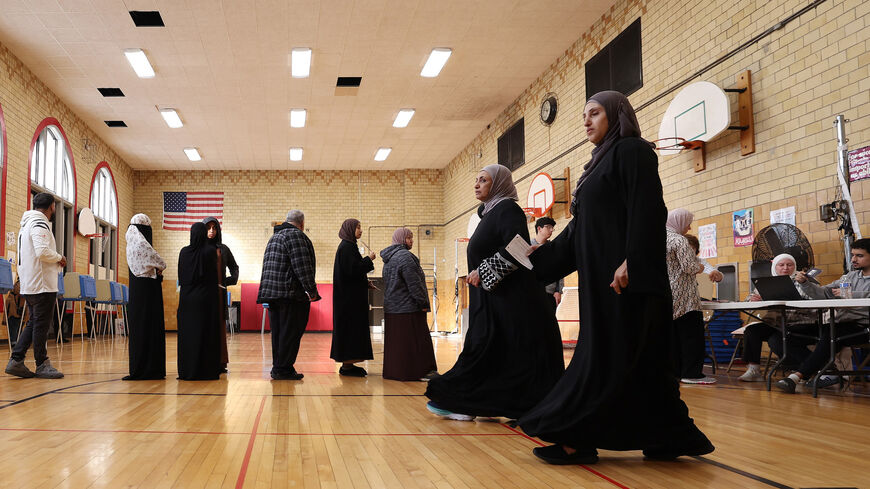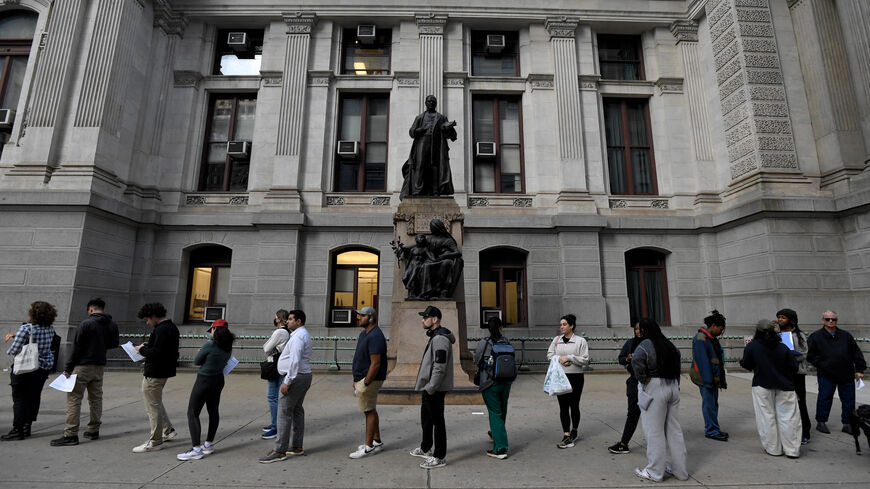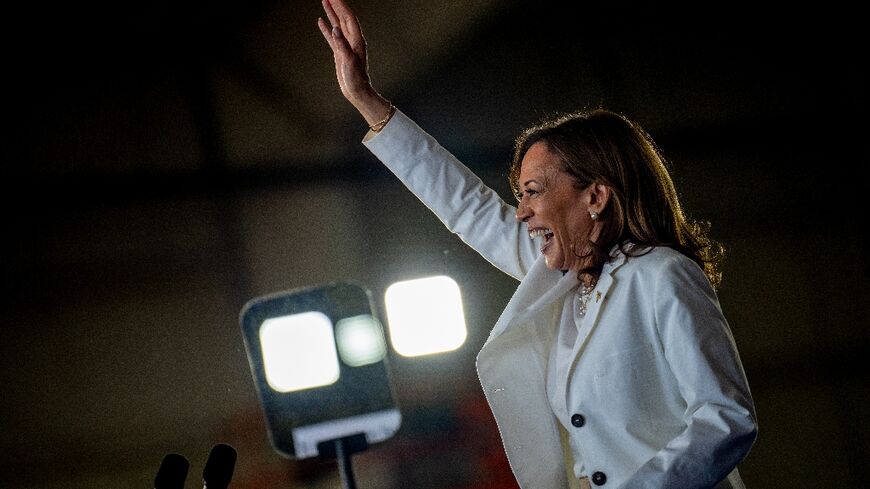Arab Americans are evenly split between Harris and Trump. Will it matter?
As the US weighs its response to escalations in the Middle East, a new poll finds Arab American support for Harris and Trump virtually tied.
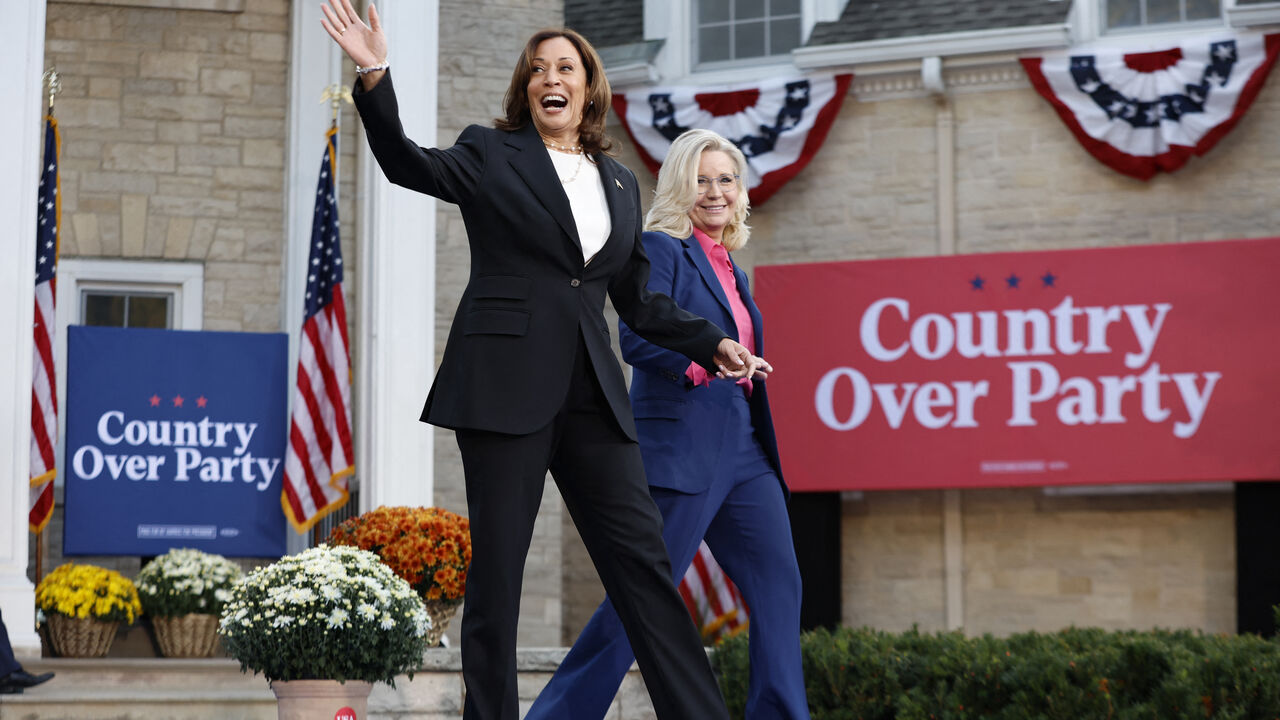
Recent escalations in the Middle East are unlikely to influence the majority of the American electorate. But the US response to conflict in the region is registering with Arab American voters evenly divided in support of Democrats and Republicans ahead of the November election.
The average American voter doesn’t regard war in the Middle East as a top priority when considering whom to vote for on Nov. 5. Gallup reports that in September, just 1% of Americans considered war in the Middle East the most important problem facing the country.
Voters who tuned into Tuesday’s vice presidential debate heard from Democratic candidate Tim Walz that the US should continue to support Israel's defense and end the humanitarian crisis in Gaza, while Republican candidate JD Vance argued that former President Donald Trump established effective deterrence through fear and would do so again if elected to a second term.
Not another Iraq
As the region appears to be entering a new phase of the conflict, propelled by Iran’s missile attack on Israel as well as Israel’s ground operation in Lebanon and killing of Hassan Nasrallah, a narrow set of related issues could draw American voters’ attention, such as a rise in oil and gas prices. But on average, concerns over immigration and the cost of living overshadow talk of Israel’s security or the suffering in Gaza.
“It could matter in certain states, but as a national issue, it's certainly not a pressing issue in the way that Iraq was back in 2004, 2006, 2008. … You have to heavily discount the political impact of a lot of foreign policy questions we face because people are really concerned about stuff closer to home,” Brian Katulis, a senior fellow for US foreign policy at the Middle East Institute, told Al-Monitor.
But for Arab American voters, the calculus is different.
Arab American voters are split down the middle in their support of Democrats and Republicans, but policies on Gaza could sway them, a new poll by the Arab American Institute found.
The close divide could prove critical in key swing states like Michigan, home to 392,733 Arab Americans — one of the largest concentrations in the US — and Pennsylvania, home to 126,553.
Trump and Harris are virtually tied among Arab American voters, at 42% to 41%, respectively, the Arab American Institute poll found.
Harris has recovered a majority of the support among Arab Americans that Biden lost in the months following Israel’s bombardment of Gaza in response to the Oct. 7 attack in which Hamas killed 1,200 people and took 250 more hostage.
But she still falls far below Biden’s 2020 level of support with Arab American voters, when 59% of the community backed Biden in his race to unseat Trump.
Yet given the opportunity to vote for a third party candidate, a large percentage of the demographic could shun the mainstream parties, according to an August poll from the Arab American Anti-Discrimination Committee, the country’s largest Arab American organization. The ADC poll "showed Jill Stein of the Green Party taking 45% of the Arab American vote, followed by Harris with 27.5% — a substantial jump from Biden, who had received just 7%," Al-Monitor reported.
“A lot of the numbers Stein pulls are first-time voters, so it's not necessarily that she's taking away votes from Harris or Trump,” Abed Ayoub, national executive director of the ADC, told Al-Monitor in August. “She's pulling people into the electorate. And that's the part people overlook about the Green Party. They do pull in these young voters who vote for the first time.”
As of Oct. 4, FiveThirtyEight’s aggregate of Michigan polls has Harris slightly ahead with 47.9% of the vote compared to Trump’s 46.4%.
Both the Trump and the Harris campaigns have done outreach to the community in Michigan.
Traditionally, Arab Americans have favored Democrats. But James Zogby, co-founder of the Arab American Institute, said the latest polling numbers reflect the reality that a significant population of Arab Americans vote Republican.
More notably, Zogby said, there is a segment of the community who, in past years, voted Democrat and are now turning their back on the party in retaliation for how the Biden administration has responded to the crisis in Gaza.
Harris has straddled the line between her “unwavering commitment to Israel” and a vow that she “will not be silent” about the suffering of Palestinians in Gaza. She opted not to attend Israeli Prime Minister Benjamin Netanyahu’s address to Congress in July.
But for many Arab American voters, she remains too closely aligned with the Biden administration’s policy on the war in Gaza.
“The rhetoric from Joe Biden hasn't helped at all establish a distinction between Democrats and Republicans, and Harris — who I believe is very different than Joe Biden — I don't think has broken through with the difference. And she still has a month in which to do it, but she's running out of time here,” Zogby said.
Making a point
The Arab American Institute poll also found that, by a slight majority (46% to 43%), Arab American voters say they would prefer to see Republicans control the next Congress beginning in January.
Zogby said the finding reflects the desire among Arab Americans to send a message to Democrats that they are dissatisfied with the way the White House and the Democrat-controlled Senate have responded to Israel’s attacks on Gaza, which have killed more than 41,000 Palestinians, according to Gaza’s Health Ministry.
Republicans in the current Congress have voted to block funds to resettle refugees from Gaza in the United States, and to eliminate funding for the UN Relief and Works Agency and the Biden administration’s special representative for Palestinian affairs. They have also sought to thwart efforts to grant Palestinians increased participation in the United Nations.
But Zogby says voters aren’t considering that those policies could become law if Republicans control the White House and Congress next year. Likewise, they’re not necessarily reflecting on Trump’s positions during his first term in office that could resurface if he returns to the White House, such as a ban on immigration from Muslim-majority countries or targeted military attacks against Iran.
“When the blood is flowing in Lebanon and when it still is flowing in Gaza and people are just devastated by what's happening in both places, it's really hard to make any argument at all, because that's not what's on their minds. The Muslim ban isn't on their minds. But what's on their mind right now is that genocide is unfolding and there's no response to it,” Zogby said.
The Arab American Institute found that both presidential candidates would see a bump in support if they demanded a cease-fire and unimpeded humanitarian aid into Gaza or suspended arms shipments to Israel.
But Harris so far has shown an unwillingness to make a clean break with Biden’s policies on the war in Gaza. And Trump has shown no sign of challenging the Israeli leader’s war path.

